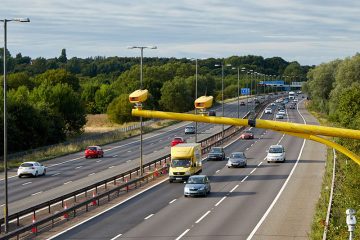Understanding the Role of DVLA in UK Road Safety
Introduction to the DVLA
The Driver and Vehicle Licensing Agency (DVLA) plays a crucial role in maintaining driving standards and road safety across the United Kingdom. Established in 1965, the DVLA is responsible for registering vehicle owners, issuing driving licences, and keeping records of drivers and vehicles on the road. With safety being a primary concern for transport authorities, the DVLA’s functions are vital for ensuring that only qualified and licensed individuals operate vehicles.
Recent Developments
Recent events have underscored the importance of the DVLA’s operations. In October 2023, the agency reported a significant rise in applications for driving licences, attributed to the resurgence of post-pandemic travel and an increase in new drivers entering the market. According to a DVLA spokesperson, there has been an uptick of over 15% in driving test bookings compared to the previous year.
Additionally, the DVLA has implemented new technology to streamline its processes. The introduction of an online application system has been met with positive feedback, reducing waiting times for both driving tests and the issuance of driving licences. Reports suggest that processing times have been halved, allowing for a more efficient application process.
Importance of the DVLA’s Role in Road Safety
The significance of the DVLA extends beyond just administrative functions. By ensuring that drivers are properly licensed and vehicles are roadworthy, the DVLA contributes directly to reducing accidents and enhancing public safety. In 2022 alone, UK road safety statistics showed a decrease in casualties, attributed in part to the agency’s rigorous licensing and monitoring processes.
What Lies Ahead?
Looking forward, the DVLA aims to enhance its operations even further. Plans are underway to improve customer service and response times through digital innovations and an expanded workforce. Moreover, the agency is advocating for stricter regulations around driving safety, especially concerning young drivers, which could include more comprehensive testing protocols.
Conclusion
In conclusion, the DVLA remains a pivotal institution in the promotion of road safety and the management of driving regulations in the UK. Its ability to adapt to changing circumstances and embrace technology will be crucial as the agency addresses the growing demands of modern drivers. For the public, understanding the workings of the DVLA is important not only for compliance but also for fostering a safer driving environment in the United Kingdom.









